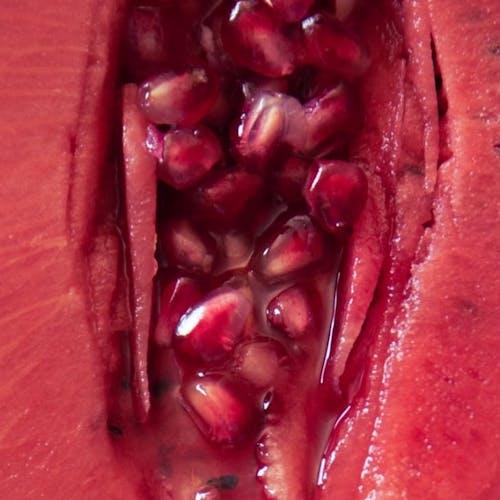This website uses cookies to enhance the user experience. By using Yoppie you are agreeing to our use of cookies.
A BS-Free Guide To Ovarian Cancer Risk Factors
Written by Yoppie
07 May 2021
What is ovarian cancer?
What types are there?
What causes it?
Who is most at risk?
Can you reduce your risk?
What are the treatments?
How worried should you be?
When should you see a doctor?
Got questions about ovarian cancer? You’re in the right place. It’s easy to Google your symptoms and risk level and freak yourself out (we’ve all done it), but often a seemingly scary symptom turns out to be nothing. Similarly, an easily missed symptom could be something. Knowing the symptoms of ovarian cancer and how at-risk you are can put your mind at ease and help you understand what to look out for...
What is ovarian cancer?
Your ovaries are two small organs found deep in the abdomen, and they’re connected to the womb. It’s where your supply of eggs comes from, so they’re pretty handy when it comes to getting pregnant. Ovarian cancer is a cancer that appears in the ovaries, and it’s one of the most common types of cancer found in women.
What types are there?
There are several types of ovarian cancer depending on the type of cell where the cancer originated. The most common are epithelial tumours, which begin in the thin tissue that covers the outer layer of the ovaries. This kind makes up about 90% of all ovarian cancers. Then there’s stromal tumours that begin in tissue that contains cells which produce hormones, and these can often be diagnosed earlier than other types. Lastly there’s germ cell tumours, that begin in the cells which produce eggs. They’re rare, but tend to affect younger people more.
What causes it?
Unfortunately the exact cause of ovarian cancer is not known, but there are a few biological and lifestyle factors that can raise your risk. For example, if you are over the age of 50, or have family history of breast or ovarian cancer. That’s not to say you should live in fear; you shouldn’t. But knowing that you are in a higher risk category can come in handy for early diagnosis. A few other factors that can increase risk are:
- Endometriosis
- Smoking
- Obesity
- Exposure to asbestos
- Hormone replacement therapy (HRT)
Who is most at risk?
It’s good to be aware of - and keep an eye out for - symptoms no matter your age, as you would with any type of cancer. That said, ovarian cancer tends to be more common in people aged between 50 and 60 years old.
Those with family history are also more at risk due to the potential for inherited gene mutations, which is the case for a small percentage of ovarian cancer sufferers. These gene mutations are inherited from parents, and though the genes BRCA1 and BRCA2 are most commonly associated with an increased risk of breast cancer, they can mean an increased risk of ovarian cancer too. Also, gene mutations associated with Lynch syndrome can increase the risk of ovarian cancer.
If you have family history - specifically two or more close relatives with the disease - you will have an increased risk, so it’s always a positive move to know what your risk factors are, and understand the symptoms to watch out for.
Can you reduce your risk?
Thankfully, whether or not you are at a higher risk, there are a few ways to reduce the risk. The first is taking oral contraception, as studies show this can reduce risk of ovarian cancer by 30-50% for up to 30 years. Of course, you’ll want to discuss your options with your GP before taking any contraception, as everyone’s situation and personal health is different, but knowing this is an option can be encouraging.
Another way to reduce risk is giving birth and breastfeeding. Don’t worry, we’re not suggesting you get busy having a baby just to reduce your risk! But if you do decide to have one at any point then this is good to know. Plus, for those who have already given birth or breastfed, it’s handy to know that you have already reduced your risk. This is because having a child and breastfeeding reduces the number of ovulations you have during your menstrual cycle, which can reduce risk of ovarian cancer.
And of course, the ol’ trusty favourite - a healthy lifestyle! If you have increased risk of ovarian cancer you may wish to maintain a healthy body weight, stay away from smoking, eat a balanced and nutritious diet, and get some regular exercise. All of these things can reduce risk, and improve your health in general.
What symptoms should you watch out for?
As with many cancers, frustratingly the most common symptoms of ovarian cancer are rather similar to a lot of other conditions, but it’s still good to know what they are so you can monitor your health and know when you have more than one symptom.
Symptoms could include:
- Bloating or swelling in the abdomen
- Feeling full quickly when eating
- Weight loss
- Pain/discomfort in the pelvis area
- A change in your bowel habits
- Needing to urinate more frequently
What are the treatments?
Treatment for ovarian cancer is dependent on your own health and how far advanced the cancer is, but there are several common treatments, often starting with surgery to remove the cancer (usually removing the ovaries, womb and fallopian tubes), and possibly chemotherapy to shrink or kill any remaining cancer cells. If you are diagnosed with ovarian cancer, your doctor will advise on the best treatment options for your personal circumstances.
How worried should you be?
Firstly, if you don’t have ovarian cancer, we definitely don’t want this article to make you worry about getting it! This is simply an informative post to keep you in-the-know.
Keep in mind when ovarian cancer is diagnosed and treated early, the chance of recovery is much greater - according to Cancer Research UK almost 95% of stage 1 ovarian cancer sufferers will survive for 5 years or more after diagnosis. That’s why knowing the symptoms and your own risk level is important. For different stages of the disease there are varying survival rates. You can visit Cancer Research UK to find more info on this.
When should you see a doctor?
If you experience any of the symptoms listed above, it’s best to make an appointment with your GP so they can rule out anything sinister. Most of the time it’s nothing, but if in doubt - ALWAYS check.
If you have already visited your doctor but your symptoms continue or worsen, don’t ignore this. Go back and explain so they have more information to help you. There is also the potential for genetic testing to check your ovarian cancer risk, so if you have family history of the disease your GP may refer you to a genetics specialist to evaluate.
Do you have questions about ovarian cancer? Shout out in our private Facebook group or drop us a note on Insta @itsyoppie. Don't forget that our personalised period box can get organic tampons, PMS supplements and more delivered easily and regularly through your letterbox, so that's one load off your mind about everything that can be going on down there.
Section jump
Back to top
Subscribe To Our Newsletter
YOPPIE





© 2026 Yoppie is a registered trademark of Phlo Technologies Ltd.
Yoppie's supplements are not a substitute for a varied diet and healthy lifestyle and are not intended to diagnose, treat, or cure any disease. If you are pregnant, breastfeeding, have a medical condition or are under medical supervision, please consult with your doctor before taking any of our products.






